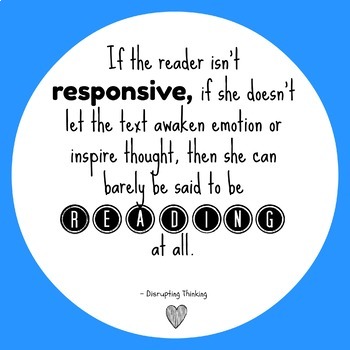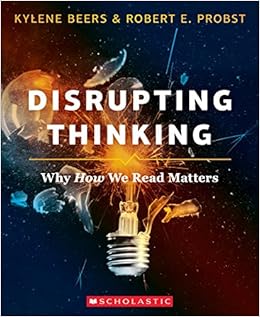
If you are friends with me on Facebook, you have seen several posts over the last few weeks about reading and are aware that I'm pretty passionate about helping kids to love reading. I'm an avid reader, but I haven't always been, so I know for some students, they just aren't there YET. As I've been reading Disruptive Thinking by Beers and Probst, I've been stepping up on that soapbox frequently. It's a place that I've shied away professionally in my past because I didn't want to burn any bridges, but now, 18 years in, there are some bridges that need to be burned, and one of them is killing the love of reading for our students.
I've been fortunate to teach students from 2nd grade to middle school and one thing I have personally witnessed is the disconnect that occurs between students and reading the older they get. It has often caused me to question what do we as educators do to perpetuate this disparity.
Sometimes the love of reading gets lost in the skills of reading. I started thinking about my own practice and asked myself the following questions in reflection:
- How many opportunities do/did I offer students to read without completing a task?
- How many opportunities do/did I offer students to choose their own books?
- How do/did I foster a love of reading in my students?
- How do/did I help students choose books that were for them, instead of ones I wanted them to read?
If all I was asking students to do was paraphrase, summarize, write about what they had read, or more, than I wasn't really helping to create a love for reading.
The moments I let go and let my kids read for enjoyment and talk about what moved them, challenged them, made them angry, made them sad, etc. those were the moments that reading became authentic and my students saw it as more than a task, but something that was important.
In the words of Beers and Probst, "The text won't matter to them unless it touches them emotionally or intellectually." And that is my goal....connecting every student to a text that makes them angry or makes them cry. A text that challenges what they know and makes them question the world around them.




